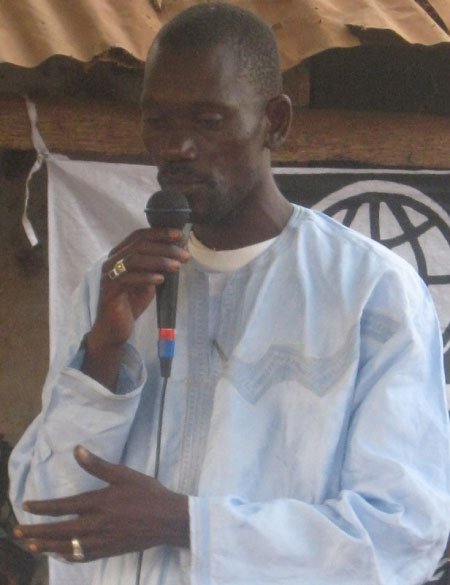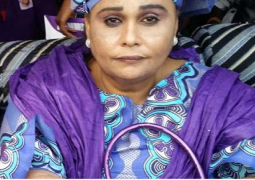
Officials of the West African Agricultural Productivity Programme (WAAPP) led by its country coordinator, Sheikh Tijan Sosseh, last Friday commenced a nationwide assessment on their project intervention sites.
The WAAPP project, which aims to increase agricultural production and productivity, is currently intervening in 1,500 farms across the country.
According to the project officials, the project is focusing on three commodities such as groundnut, maize and rice, and their implementing partners are the National Agricultural Research Institutes (NARI) through the WAAPP innovation platform.
Speaking at a maize farm in Kunkunjang Jattaya, one of those coordinating the farms, Musa Fatty, said the farm is about eight hectares, thanking WAAPP for providing them with fertilizers and the seed to the farms on time.
He added that by looking at the farm, which is an eye-catching farm, they are anticipating a very good high yield at the end of the season.
According to him, the WAAPP intervention has come at the right time when farmers are desperate for lack of seeds and fertilizers.
He also used the opportunity to tell the WAAPP official that this year is promising compared to the previous year’s raining season.
For his part, the country project coordinator said the tour was held to assess their project intervention sites across the country and evaluate their expectation impact as well as to sound the minds of the beneficiary farmers on the project.
He said the visit would give them the opportunity to hear from the farmers their constraints, expectations and achievements as well as to boost strategy to use through the innovation platform in ensuring they have bumper harvest.
He said component one aims at strengthening and harmonising the system rules, mechanisms and producers, governing the registration and dissemination of technology products, genetic materials, pesticides and other crop protection products to make them available for domestic and cross border and distribution.
The country coordinator also said the WAAPP is a programme initiated by ECOWAS with financial support from the World Bank.
The country coordinator was also quick to say the programme aims to contribute to sustainably increase productivity of the national and regional priority sectors while providing support to regional integration as a means of fostering shared growth and poverty reduction in West Africa.
Turning to their assessment on the farms across the country, the project coordinator said so far what is available on the ground regarding the farms is promising and eye-catching development.
He added that if the trend continues then farmers will definitely gain high yield at the end of the season.
He said all what the project needs is for the farmers to adopt best practices so that at the end of the season they will produce more yield that can sustain them for the next years to come.
He then challenged the farmers to apply the best method that they deem can double their yields as well as seek advice from the NARI, who are the implementing agency for the WAAPP through the innovation platform.
He added that WAAPP is geared towards strengthening the generation of technology and the dissemination aspect with the global objective of improving agricultural productivity.
He said their intervention sites are part of the innovation platform technology transfer to activities.
The tour party also visited the Lower River Region where an extension worker attached to WAAPP, Alasan Jarra, hailed the farmers for heeding to the advice given them by NARI and for adopting best practice.
In the North Bank Region, the delegation visited the chairman of the Agricultural Multipurpose Centre, and a groundnut farm in the area.
One Omar Sowe, a beneficiary farmer, also expressed appreciation with the intervention of WAAPP in the provision of fertilizers and seeds.
For her part, the monitoring and evaluation officer of WAAPP, Yassin Khan Jallow, talked about the importance of setting up the innovation platform, which are key components in sensitising farmers to adopt the best recommended practices.
She added that the purpose of the assessment was to see whether the farmers were practising the best recommended practice given to them by NARI.
“I am very much impressed with what I have seen on the farms, which is very promising and eye-catching in ensuring that there will be better yield this year and I urge the farmers to continue adopting the recommended best practices,” she said.



